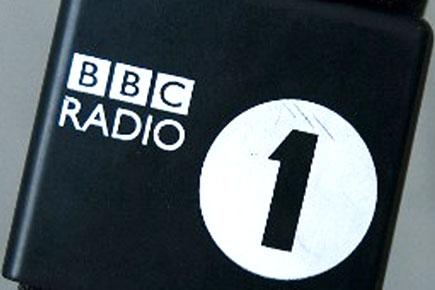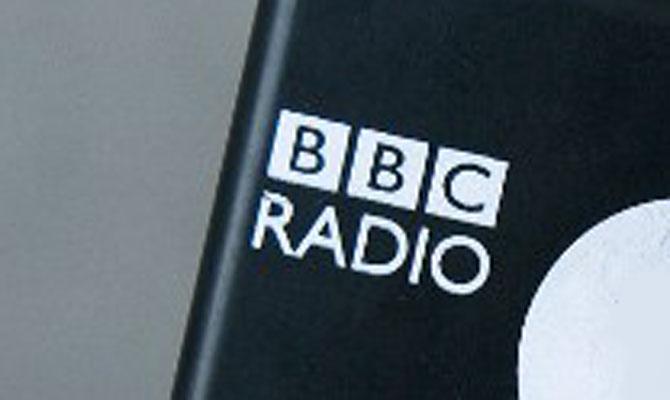The British Broadcasting Corporation (BBC) began radio service in the United Kingdom on this day November 14 in 1922. The BBC Radio service has gone on to create several popular and award-winning shows spanning various genres that have garnered listeners not only in Britain but also worldwide over the years. On this occasion, we present a select list of shows, some of which have ceased to air and others that are still going strong...

BBC Radio logo
The British Broadcasting Corporation (BBC) began radio service in the United Kingdom on this day November 14 in 1922. The BBC Radio service has gone on to create several popular and award-winning shows spanning various genres that have garnered listeners not only in Britain but also worldwide over the years. On this occasion, we present a select list of shows, some of which have ceased to air and others that are still going strong...
ADVERTISEMENT
The Goon Show: This groundbreaking radio comedy series that ran on the BBC Home Service from 1951 to 1960 mixed ludicrous plots with surreal humour, puns, catchphrases and an array of bizarre sound effects. The show was created and mainly written by comedian Spike Milligan, who was inspired to name the programme, 'The Goon Show' after a Popeye character Alice the Goon. It has cited as an inspiration by The Beatles legend John Lennon, members of the legendary comedy group 'Monty Python'. 'The Goon Show' also featured the work of comedian Peter Sellers who went on to star in 'The Pink Panther' film franchise and other successful Hollywood motion pictures. The show was also broadcast internationally through the BBC Transcription Services in countries like Australia, South Africa, New Zealand, India and Canada throughout the 1950s.
Also Read: Why the BBC matters

Pic/AFP
Just a Minute: The long-running panel game in which contestants must attempt to speak for one minute without repetition, hesitation or deviation first began on Radio 4 on 22 December 1967, three months after the station's launch. It won a Gold Sony Radio Academy Award in 2003. 'Just a Minute' still enjoys popularity amongst listeners in the UK and has developed an international following through its broadcast on the BBC World Service and, more recently, on the internet.
The Archers: A long-running rural soap opera, which was first aired on Radio 4, the BBC's main spoken-word channel, 'The Archers' is currently its most listened to programme. With over 17,800 episodes, it is the world's longest-running radio soap opera production. After a pilot that aired in 1950, 'The Archers' debuted on 1 January 1951 and currently holds the BBC Radio record for being the most listened to Radio 4 non-news programme, with over five million listeners. The show originally billed as "an everyday story of country folk" is now described as "contemporary drama in a rural setting". It has over one million via the internet.
The Hitchhiker's Guide to the Galaxy: Douglas Adams' famous science fiction comedy serial follows the adventures of hapless Englishman Arthur Dent and his friend Ford Prefect, an alien who writes for The Hitchhiker's Guide to the Galaxy, a pan-galactic encyclopedia and travel guide. originally broadcast in the United Kingdom by BBC Radio 4 in 1978, and afterwards the BBC World Service, National Public Radio in the U.S. and CBC Radio in Canada. It ran till 21 June 2005. The show made history as the first radio comedy programme to be produced in stereo, and was innovative in its use of music and sound effects, winning a number of awards. It also spawned a hug e media franchise over the years spanning several books, TV shows and even a successful 2005 film of the same name.
I'm Sorry I Haven't a Clue: A comedy series that parodied the radio panel game format, 'I'm Sorry I Haven't a Clue', first aired on April 1972 and has been broadcast since on BBC Radio 4 and the BBC World Service, with repeats aired on BBC Radio 4 Extra. It was developed from the long-running 'I'm Sorry, I'll Read That Again', a radio sketch show, whose writers included comedy legends John Cleese (of Monty Python fame), Tim Brooke-Taylor among others. The concept of the show devised by Graeme Gordon was that it was totally unscripted and would take the form of a parody panel game with no actual competition. 'I'm Sorry I Haven't a Clue' has has over two million listeners on BBC Radio 4 and its recording sessions typically fill 1500-seat theatres within a week of being advertised.
Any Questions?: A topical debate programme, which began on 12 October 1948, 'Any Questions', is broadcast by BBC Radio 4 on Friday evenings and repeated on Saturday afternoons, when it is followed by a phone-in response programme, Any Answers? The show typically features a panel with four members drawn from politicians from the three major UK political parties and other public figures who answer questions put to them by the audience, who are drawn from the locality being visited. Questions are collected from the audience and a number are then selected by a BBC producer. Twitter has been prominently used on 'Any Questions?' in recent years. A most notable example of social media involvement occured on 9 October 2015, when panel member Charles Moore comment on Great British Bake Off winner Nadiya Hussain's dish, a multi-coloured cheesecake stating that, she should have made 'something traditional and Islamic instead of a ... white man type dish' was responded to by a tweet made by a listener, read by the show's chairman Jonathan Dimbeleby, which said, "'The winner was British and her culture is our culture, why shouldn't she bake a 'white man's' cake if she wants?" The tweet was met with applause from the audience in the room.
Read Story: David Beckham to star in BBC documentary film
Desert Island Discs: The longest running music radio programme in British history, Desert Island Discs is a talk show on BBC Radio 4, where the guest, usually a celeb called a "castaway" is interviewed. is asked to choose eight recordings (usually, but not always, music) a book and a luxury item that they would take if they were to be cast away on a desert island. Transmission began on 29 January 1942 and still continues today. More than 3,000 episodes have been recorded, with some guests having appeared more than once and some episodes featuring more than one guest. Originally devised and presented by English radio broadcaster, Roy Plomley it has been hosted by Kirsty Young since 2006. The show featured a bevy of top names including award-winning broadcaster and naturalist Sir David Attenborough over the years.
Hancock's Half Hour: The highly influential comedy show, which began on radio on 2 November 1954 and transitioned to television. Both the radio series and TV show ran till 30 June 1961. 'Hancock's Half Hour' was notable for developing the situation comedy genre. Comedian Tony Hancock an exaggerated and much poorer version of his own character and lifestyle on the show, Anthony Aloysius St John Hancock, a down-at-heel comedian living at the dilapidated house. South African actor and comedian Sid James, famous for being one of the cast members of the popular 'Carry On' film series gained popularity for his character Sid, a criminally inclined confidant of Hancock, who usually succeeded in conning him each week. The radio series ran for seven seasons and the TV show, which began on 1956 ran simultaneously for 7 seasons. In 2009, the surviving radio episodes were repeated weekly on the digital network BBC Radio 7, chronologically sequenced.
Journey Into Space: This science fiction show ran from 21 September 1953 to 18 June 1958 and was the last UK radio programme to attract a bigger evening audience than television. English theoretical physicist and cosmologist Stephen Hawking is said to be a fan of the series. 'Journey Into Space' went on to be translated into 17 languages including Hindi, Turkish and Dutch. The show's creator Charles Chilton went on to write three best-selling novels and several comic strip stories, based upon the radio series. Broadcaster David Jacobs played 22 different characters each with his own distinctive voice during the show's 4-season run. Each half-hour episode would usually end with a dramatic cliffhanger, to increase the audience's incentive to tune into the next episode.
The News Quiz: A topical panel game broadcast on BBC Radio 4, 'The News Quiz' was first broadcast in 1977 and is still aired to this day. It is usually recorded in front of an audience on Thursday evenings at the BBC Radio Theatre at Broadcasting House in central London and then edited and broadcast first on Friday evening at 6:30, then repeated on the Saturday lunchtime. The final 28 minute show is significantly shorter than the original recording. Each week, four panellists usually either comedians or journalists, and sometimes politicians test contestants' knowledge of the events of the previous week by asking questions which are usually oblique references to those events. The tone of the show is generally humourous where the participants frequently wander off topic and panellists usually make satirical remarks once the question has been answered. 'The News Quiz' is currently hosted by actor-comedian Miles Jupp and an American version hosted by Lewis Black premiered in 2012.
 Subscribe today by clicking the link and stay updated with the latest news!" Click here!
Subscribe today by clicking the link and stay updated with the latest news!" Click here!






